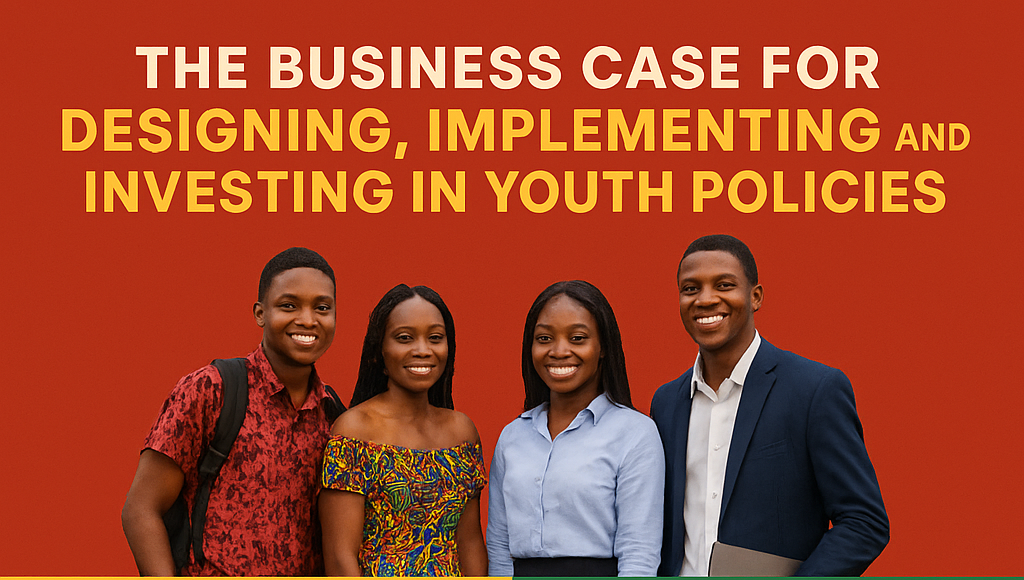Currently Empty: $0.00

Difficult Conversations: Why they are necessary and how to handle them
Effective communication is the backbone of any successful relationship, be it personal or professional. However, there are times when we must engage in difficult conversations, which can be daunting and uncomfortable. In this article, we will explore the importance of having such conversations and the requisite skills needed to handle them.
The Importance of Difficult Conversations
Difficult conversations are an inevitable part of life. They can arise from conflicts, disagreements, or sensitive topics. These conversations often occur in both personal and professional settings and can be triggered by various factors, such as misunderstandings, unmet expectations, differing values, or emotional stress.
Difficult Conversations in Personal Relationships
In personal relationships, difficult conversations can be a significant challenge due to the emotional intimacy and vulnerability involved. These conversations can be uncomfortable, sensitive, and emotionally charged, making it essential to approach them with care and empathy.
Financial discussions, for instance, can be a source of tension in relationships. Couples may struggle to discuss debt, financial struggles, or differences in spending habits, especially if one partner feels judged or responsible. Long-term financial goals, such as saving for a home or retirement, can also be a challenge if partners have different priorities or expectations. Moreover, discovering financial infidelity, where a partner has been hiding financial information or making secret purchases, can lead to feelings of betrayal and mistrust.
Relationship dynamics can also be a minefield for difficult conversations. Discussing communication styles, conflicts, or feelings of neglect can be challenging, especially if one partner feels defensive or unheard. Conversations about intimacy, emotional connection, or feelings of disconnection can be vulnerable and difficult to navigate. Establishing or redefining boundaries in a relationship can also be uncomfortable, especially if one partner feels restricted or controlled.
Health concerns can also give rise to difficult conversations. Discussing a partner’s chronic illness or disability can be difficult, especially if it affects daily life, intimacy, or long-term plans. Conversations about mental health, such as anxiety, depression, or trauma, require empathy and understanding. Addressing addiction or substance abuse in a relationship can be incredibly challenging and may require professional guidance and support.
Difficult conversations can also arise from various life stages and challenges. For instance, discussing family planning, parenting styles, or disagreements about child-rearing can be emotionally charged. As couples navigate the complexities of building a family, open and honest communication is crucial.
Infidelity, trust issues, or feelings of insecurity can also give rise to extremely difficult conversations, which may require the guidance of couples therapy. These conversations demand empathy, understanding, and a willingness to work through painful emotions.
Lastly, discussing end-of-life planning, aging, or long-term care can be uncomfortable, but is essential for planning and preparing for the future. Having these conversations can help couples make informed decisions, alleviate uncertainty, and ensure that their wishes are respected.
Approaching these difficult conversations with empathy, active listening, and an open mind can help navigate the challenges and strengthen the relationship. By doing so, couples can build trust, understanding, and resilience, ultimately fostering a deeper and more meaningful connection.
Difficult Conversations in the Workplace
In the workplace, difficult conversations can take many forms, but some common examples include:
Addressing Performance Issues: Discussing an employee’s underperformance, missed deadlines, or subpar work quality can be uncomfortable for both the manager and the employee. These conversations require tact, empathy, and a clear understanding of the expected improvements.
Providing Critical Feedback: Giving constructive criticism to an employee or colleague can be challenging, especially if the feedback is negative or suggests significant changes. However, providing regular, actionable feedback is essential for growth, development, and improved performance.
Negotiating Roles: Conversations about role changes, promotions, or demotions can be sensitive, as they often involve discussions about job security, career advancement, and personal aspirations. These conversations demand active listening, empathy, and a clear understanding of the employee’s strengths, weaknesses, and goals.
Resolving Conflicts: Managing conflicts between team members can be particularly challenging, as they often involve strong emotions, differing perspectives, and competing interests. Resolving these conflicts requires a neutral, empathetic approach, focusing on finding mutually beneficial solutions that promote a positive, productive work environment.
The nature of difficult conversations means they are frequently accompanied by anxiety and apprehension, as individuals may fear confrontation, rejection, or damaging relationships. However, avoiding these discussions can lead to unresolved issues, strained relationships, and even greater conflict over time. Therefore, engaging in difficult conversations is crucial for fostering understanding, growth, and resolution.
Requisite Skills for Handling Difficult Conversations

So, what skills do we need to handle difficult conversations effectively? We already touched on some of them but let’s rehash them for clarity. Here are some essential ones:
Active Listening: Listening attentively to the other person, without interrupting or judging, is crucial in difficult conversations. Listening can help to reduce conflicts and improve relationships. This is not generally easy, especially when the other party is making remarks that you may deem untrue, half-true or uncalled-for. Restraining oneself with emotional intelligence is critical here.
Empathy: Empathy is a vital component of effective communication, particularly in difficult conversations. By showing understanding and compassion towards the other person, we can help to diffuse tension, create a more constructive dialogue, and ultimately build stronger relationships.
As Daniel Goleman, author of “Emotional Intelligence,” so aptly puts it, “Empathy is the foundation of all effective relationships” (Goleman, 1995). Empathy allows us to see things from the other person’s perspective, to understand their feelings and needs, and to respond in a way that is supportive and non-judgmental.
When we show empathy, we create a safe space for the other person to express themselves, which can help to reduce defensiveness and promote a more constructive dialogue.
Here are some ways to demonstrate empathy in difficult conversations:
- Active Listening as mentioned above is till applicable here.
- Reflective listening: Reflect back what you’ve heard the other person say, to ensure you understand their perspective and to show that you’re actively listening.
- Emotional validation: Acknowledge the other person’s feelings, and show that you understand why they might be feeling that way.
- Open-ended questions: Ask open-ended questions that encourage the other person to share their thoughts and feelings.
- Non-verbal cues: Use non-verbal cues like nodding, making eye contact, and tilting your head to show that you’re engaged and empathetic.
By incorporating empathy into our difficult conversations, we can create a more positive and constructive dialogue, one that is built on mutual understanding and respect.
Clarity: In the Ghanaian context, being clear and direct in communication can be a delicate matter. While clarity is essential to avoid misunderstandings and ensure effective communication, being direct is often misconstrued as rudeness or being insensitive to others’ feelings.
Hence, in Ghanaian culture, indirect communication is often preferred as a way of showing respect and avoiding conflict. This, though, can lead to ambiguous messages, misunderstandings, and unresolved issues. However, being too direct can be perceived as aggressive, confrontational, or disrespectful, particularly when communicating with someone of higher authority or older in age.
To navigate this cultural nuance, it’s essential to find a balance between being clear and direct while still being respectful and considerate of others’ feelings. Here are some tips for achieving clarity in communication within the Ghanaian context:
- Use polite language: Begin your message with a polite greeting or expression of respect, such as “Good morning, sir” or “Please, I want to discuss something with you.”
- Show empathy: Acknowledge the other person’s feelings and perspectives, and show that you’re considering their point of view.
- Use indirect-direct approach: Start with an indirect approach, such as asking a question or making a statement, and then gradually become more direct as the conversation progresses.
- Avoid blunt statements: Phrases like “You’re wrong” or “This is not good enough” can come across as confrontational. Instead, focus on specific behaviors or actions that need improvement.
- Use nonverbal cues: Pay attention to nonverbal cues like body language, tone of voice, and facial expressions. These can help convey your message more effectively and show that you’re engaged in the conversation.
- Seek feedback: Ask for feedback and clarification to ensure that your message has been understood correctly.
By being mindful of these cultural nuances and adapting your communication style accordingly, you can achieve clarity in your communication while still being respectful and considerate of others’ feelings within the Ghanaian context.-
Non-Defensiveness: Approaching difficult conversations with an open mind and a willingness to listen can help to prevent defensiveness and promote a more constructive dialogue. As noted by Marshall Rosenberg, author of “Nonviolent Communication,” “Defensiveness is a major obstacle to effective communication” (Rosenberg, 2003). When we become defensive, we often respond in ways that hinder constructive dialogue and prevent us from truly hearing and understanding the other person’s perspective.
Defensiveness can manifest in various ways, such as:
- Denial: Refusing to acknowledge or accept responsibility for our actions or their impact.
- Blame-shifting: Transferring responsibility or blame to someone or something else.
- Counterattack: Responding with aggression or criticism to divert attention from our own actions or mistakes.
- Justification: Rationalizing or explaining away our behavior, rather than acknowledging its impact.
When we’re defensive, we’re more likely to:
- Misinterpret: Misunderstand or distort the other person’s message, leading to further conflict.
- Escalate: Intensify the conflict by responding with anger, aggression, or hurtful comments.
- Block: Shut down the conversation, refusing to engage or listen to the other person’s perspective.
To overcome defensiveness and promote effective communication:
- Practice self-awareness: Recognize when you’re becoming defensive and take a step back to reassess the situation.
- Listen actively: Focus on understanding the other person’s perspective, rather than preparing your response.
- Use “I” statements: Express your thoughts and feelings using “I” statements, rather than making accusatory “you” statements.
- Seek clarification: Ask questions to ensure you understand the other person’s message and to prevent misinterpretation.
- Focus on the issue: Address the specific issue or behavior, rather than making personal attacks or criticisms.
By acknowledging and managing our defensiveness, we can create a more constructive and respectful communication environment, leading to better relationships, increased understanding, and more effective conflict resolution.
Work that is Worth Your Earnest Efforts
Difficult conversations are an unavoidable aspect of human interaction, arising in personal and professional relationships, and even in our daily encounters. However, by acknowledging the importance of these conversations and developing the necessary skills, we can transform them into opportunities for growth, understanding, and strengthened relationships.
Active listening, empathy, clarity, and non-defensiveness are essential skills for navigating difficult conversations. By cultivating these skills, we can create a safe and respectful environment for open discussion, fostering deeper connections and more meaningful interactions.
Moreover, developing the ability to engage in difficult conversations can have a profound impact on our personal and professional lives. It can lead to:
- Deeper, more authentic relationships built on trust and understanding
- Improved communication and conflict resolution skills
- Enhanced emotional intelligence and empathy
- Increased confidence and self-awareness
- Better decision-making and problem-solving abilities
In the Ghanaian context, where relationships and community are highly valued, developing the skills for difficult conversations can be particularly beneficial. By embracing these conversations, we can build stronger, more resilient relationships and communities, ultimately contributing to a more harmonious and prosperous society.
In the end, difficult conversations are not something to be feared or avoided. Rather, they are an opportunity for growth, learning, and connection. By embracing these conversations and developing the necessary skills, we can become more effective communicators, better relationships builders, and more compassionate individuals. It is indeed work that is worth your earnest efforts!
The author Jules Nartey-Tokoli is Founder and Group CEO at Groupe Soleil Vision, comprising Soleil Consults, LLC, NubianBiz dot Com and Soleil Publications. He has lived and worked in both Ghana and the United States, having extensive experience in Strategy, Management, Entrepreneurship, Premium Audit Advisory and Web consulting. He has also published several articles on Strategy and Management among others.
Discover more from NubianBiz.Com, Africa Business Directory & Portal for intra-Africa Trade, Jobs, networking and education
Subscribe to get the latest posts sent to your email.







